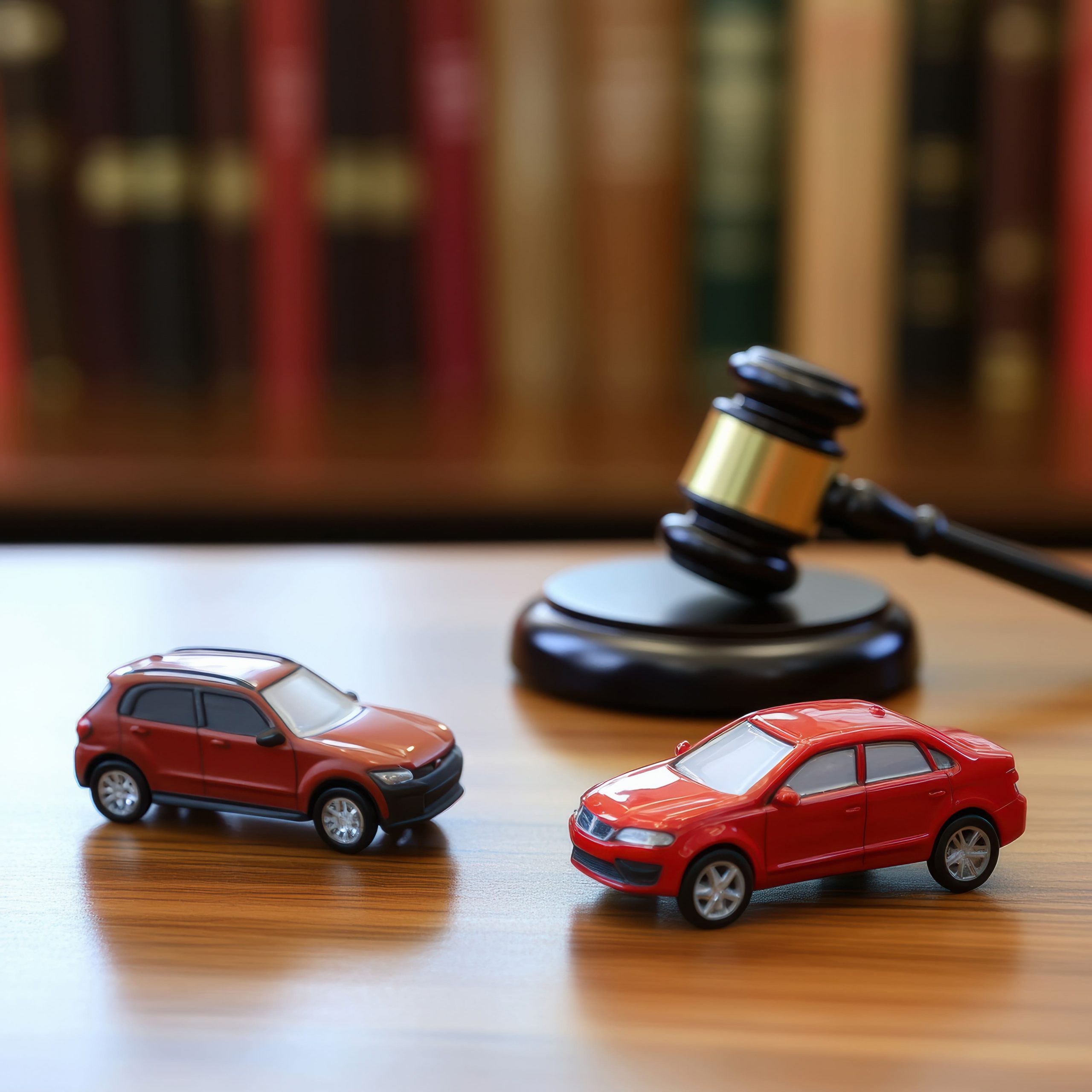Yes, you can be sued for a car accident in Florida, even with insurance. Lawsuits are allowed when injuries are serious, expenses exceed insurance limits, or property damage occurs. The time limit to sue ranges from 2 to 4 years, depending on the claim type.
If you were just in a car accident in Florida and someone mentioned suing, your heart probably skipped a beat.
Can they really take you to court? Let’s discuss it. In this article, we’ll break down:
- Florida’s no-fault system
- When lawsuits are allowed
- How much someone can sue for
- How long they have to do it
- How to protect yourself.
We’ll also answer real questions from Florida drivers and clear up the most common fears (like whether you can be sued for a minor accident or what happens if you don’t have enough insurance).
Yes, You Can Be Sued for a Car Accident in Florida
Florida is a no-fault insurance state, but that does not prevent lawsuits entirely. You can still be sued under several common conditions.
1. The Injuries Are Legally “Serious”
Under Florida law, a car accident lawsuit becomes viable when the victim suffers:
- Permanent disfigurement or scarring
- Loss of a vital bodily function
- A permanent injury confirmed by medical professionals
- Death (triggering a wrongful death claim)
If the injuries cross this serious injury threshold, the case bypasses PIP and enters traditional personal injury territory.
2. Medical Bills Exceed PIP Limits
Florida law requires drivers to carry Personal Injury Protection (PIP) insurance, which pays:
- 80% of medical bills
- 60% of lost wages
- Up to a maximum of $10,000
Once those costs exceed $10,000, the injured party may file a personal injury claim for the remaining damages.
3. Property Damage Is Involved
Florida’s no-fault insurance does not cover vehicle damage. If you’re the at-fault driver, you can be sued for:
- Repair costs
- Vehicle replacement
- Towing and rental expenses
Why Many Drivers Are Caught Off Guard
Many people assume “no-fault” means “no one can sue me.” That’s not how Florida’s insurance system works. It only means that initial medical bills go through each driver’s own insurer, not that lawsuits are off the table.
How Much Can Someone Sue You for in a Florida Car Accident?
There is no hard limit to how much someone can sue you for after a car accident. That number depends entirely on how much damage they claim and what a court agrees to award.
Categories of Compensation in Florida Car Accident Cases
Medical Expenses
This includes everything from ambulance rides to long-term rehab:
- Emergency room care
- Hospitalization and surgeries
- Prescription drugs and physical therapy
- Ongoing treatments for permanent injuries
Lost Wages and Income
If the injured person missed work or can’t return to their job:
- Past wages lost due to recovery
- Reduced future earning capacity
- Missed promotions or job changes due to physical limitations
Pain and Suffering
These non-economic damages can be substantial and include:
- Emotional distress or PTSD
- Chronic pain
- Reduced enjoyment of life
- Sleep disorders, depression, anxiety
Property Damage
- Repairing or replacing a damaged vehicle
- Compensation for personal items destroyed in the crash
Future Care and Support
If the injury leads to long-term complications, the lawsuit may seek compensation for:
- In-home care or assisted living
- Medical equipment (wheelchairs, prosthetics, etc.)
- Transportation assistance
A Realistic Example: What Happens Without Liability Insurance
Let’s say you caused a serious crash and the injured party needed surgery, months of physical therapy, and can’t return to their job. Their damages could easily exceed:
- $75,000 in medical bills
- $40,000 in lost income
- $50,000+ for pain and suffering
- $10,000 in car repairs
Total: $175,000+
If you don’t carry bodily injury liability coverage, which Florida doesn’t require, your insurance won’t pay any of that. You’ll be on the hook personally.
What Happens If You Can’t Afford It?
- Your wages could be garnished
- A lien could be placed on your home or assets
- The injured party could pursue court action for years
Statute of Limitations: How Long After a Car Accident Can Someone Sue?
Legal Time Limits Matter, And They Just Changed
In Florida, there’s a strict legal deadline for filing lawsuits after a car accident. This deadline is called the statute of limitations, and missing it could mean the case gets dismissed entirely.
As of March 24, 2023:
- 2 years for personal injury or wrongful death claims
- 4 years for property damage lawsuits
That’s a significant change. Previously, personal injury claims had a 4-year window, but now injured parties must act much faster.
Can Someone Sue You 3 Years Later?
Yes, but only for property damage. If someone files a personal injury lawsuit three years after the accident, and the crash happened after the 2023 rule change, the court is likely to dismiss it for being too late.
Why This Matters for You
If you think you’re in the clear just because time has passed, think again. The statute of limitations varies based on what kind of claim is being made, not just how long ago the crash happened. That’s why it’s smart to keep your insurance, accident reports, and any medical records on file long-term.
What If It Was Just a Minor Accident?
Even a seemingly minor crash can snowball into a lawsuit. Many Florida drivers wrongly believe that fender benders or low-speed collisions can’t lead to legal action, but that’s not always the case.
1. Delayed Injuries Surface
Injuries like whiplash, concussion, or back pain don’t always show up at the scene. Some victims experience symptoms days or even weeks later, and then seek compensation.
2. Medical Bills Stack Up
Even a few emergency room visits can exceed the $10,000 PIP limit, pushing the injured party to file a personal injury lawsuit to recover the rest.
3. Emotional or Psychological Impact
A crash doesn’t need to be high-impact to cause emotional trauma. If someone claims anxiety, sleep disruption, or PTSD, their attorney may pursue pain and suffering damages.
What Happens If You’re Sued, Step by Step
If you receive legal papers after a car accident, called a complaint and summons, do not ignore them. Here’s how to handle it properly, step by step.
Step 1: Notify Your Insurance Provider Immediately
Contact your auto insurance company right away. Delaying this can void coverage, especially if you fail to follow policy terms regarding lawsuit notifications.
Step 2: Don’t Contact the Plaintiff
Never reach out to the person suing you, even if you think it’s a misunderstanding. Everything you say can be twisted and used against you.
Step 3: Hire a Lawyer
Whether it’s through your insurer or independently, find a car accident attorney. Many offer a free consultation, and having legal help can protect you from:
- Saying the wrong thing
- Missing filing deadlines
- Failing to respond properly
Step 4: Gather Evidence
The stronger your records, the better your defense. Provide your lawyer with:
- Photos of the accident scene
- Witness names and contact info
- Police reports
- Medical documents
- Vehicle repair estimates
Step 5: File a Legal Response Within 20 Days
Florida law gives you 20 calendar days to respond to the lawsuit. Miss this, and you could lose automatically, no hearing, no chance to defend yourself.
Step 6: Consider a Counterclaim
If you believe the other driver was partially or entirely at fault, your attorney may advise filing a counterclaim. Florida follows a comparative negligence rule, meaning you can pursue compensation even if you share some blame.
Know the Difference Between Coverages
| Coverage Type | What It Covers |
| PIP | Your own medical bills (up to $10,000) regardless of fault |
| PDL | Damage to the other person’s car or property |
| Bodily Injury Liability | Injuries to others if you’re at fault |
| UM/UIM | Injuries caused by a driver with too little or no insurance |
What Happens If You Lose a Lawsuit?
One of the most asked and feared questions is: “Can I lose my house if someone sues me?”
Yes. If the court rules against you, and your insurance coverage isn’t enough to cover the damages, the other party can go after your:
- Bank accounts
- Home equity
- Future wages
- Assets like vehicles or investment accounts
That’s why proper insurance coverage is a financial shield.
You Don’t Have to Face This Alone
The moment you hear someone might sue you after a crash, the spiral begins: What if I lose everything? What if my insurance doesn’t protect me? Those aren’t just questions; they’re fears rooted in real gaps in Florida’s system.
Florida’s no-fault insurance laws were designed to simplify accident recovery, but they don’t protect against everything, especially when it comes to serious injuries, medical expenses, or pain and suffering. That’s where lawsuits begin. And too many drivers are caught off guard.
If you’ve been sued, injured, or are unsure what steps to take next, Applebaum Accident Group is here to help. We’re not a law firm. We connect people like you with trusted, compassionate personal injury attorneys who know how to handle even the most complex car accident cases. You don’t have to navigate this alone.
Get matched with a lawyer today: fast, confidential, and at no cost to you. Your legal protection starts the moment you call.
Take the First Step Toward Justice
If you’ve been injured in a car accident, don’t wait to seek legal help. Call Applebaum Accident Group today, and we’ll connect you with the right attorney to fight for your rights.
📞 855-225-5728 | Request Your Free Consultation Now
With Applebaum Accident Group, you get support, expertise, and access to Florida’s best attorneys – without the stress. Let us help you find the legal representation you deserve.





